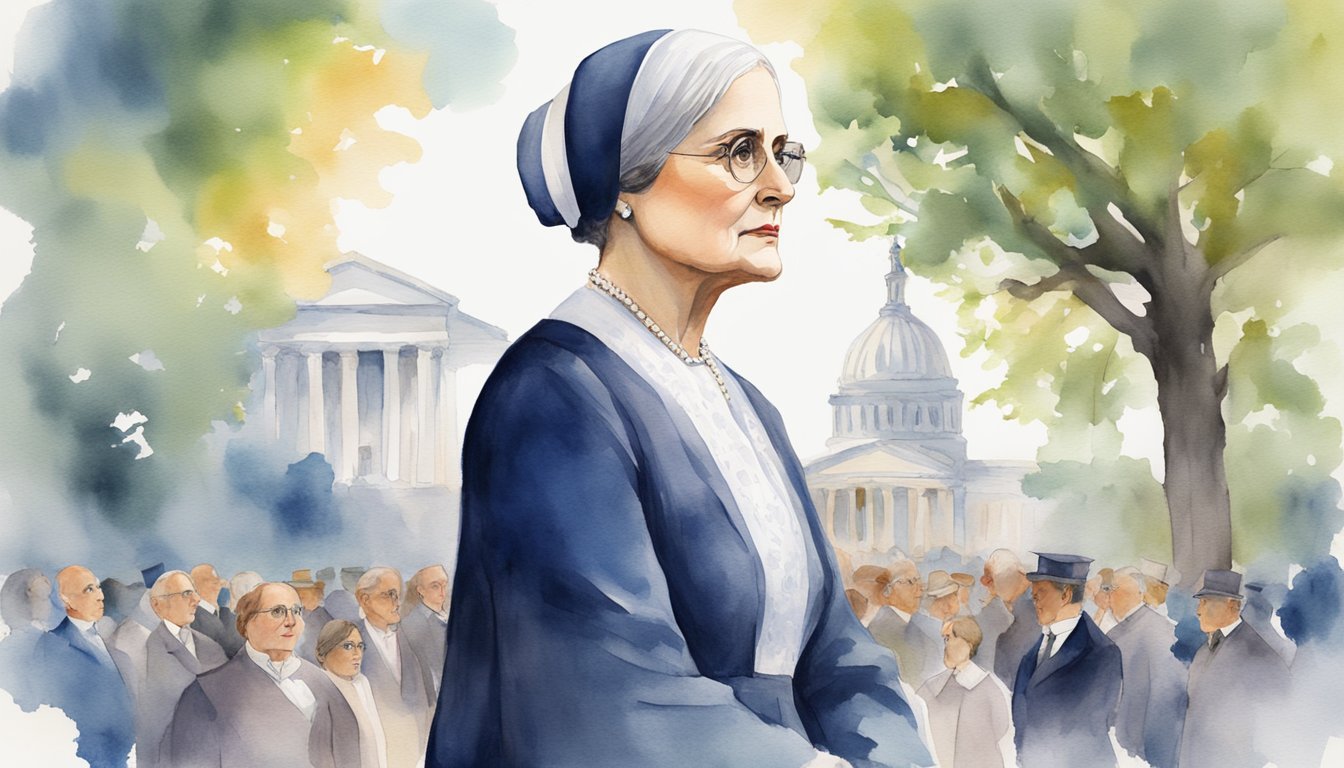Susan B. Anthony and Abortion Debate

Susan B. Anthony, a pivotal figure in the American women’s suffrage movement, has become an emblematic character in the ongoing debate about abortion. While Anthony’s own views on abortion are not explicitly documented, her life and legacy have become a touchstone in contemporary discussions by different groups who champion her as endorsing their stance.
Historical Context and Beliefs
Susan B. Anthony, born into a Quaker family with strong abolitionist beliefs, was not only a suffragist but also a crusader for women’s rights. She worked closely with Elizabeth Cady Stanton, another leading feminist foremother. There’s little concrete evidence in her numerous speeches and writings directly addressing her stance on abortion. The Susan B. Anthony List, an organization opposing abortion, considers Anthony a pro-life feminist, suggesting her advocacy for motherhood and opposition to abortion stem from her broader work for women’s empowerment.
Those with contrasting views in the abortion rights conversation argue that Anthony’s silence on the matter reflects a lack of opposition to legal abortion, underscoring that any anti-abortion sentiments are reinterpretations rather than historical fact.
Modern Interpretations and Controversies
The modern debate regarding Susan B. Anthony’s position on abortion intensifies as both pro-life and abortion rights activists aim to align their views with her feminist legacy. Tracy Thomas, a scholar, points out that Anthony’s actions concentrated more on women’s suffrage and notes the absence of clear statements from Anthony about abortion. Yet, pro-life feminists cite Anthony and her contemporaries as being fundamentally against abortion, drawing upon indirect quotes and the ethos of the era.
Feminists for Life, a group that claims Anthony as an anti-abortion activist, emphasizes revolutionizing societal conditions for women, thereby eliminating the need for abortion. However, academics like those involved in the papers project at the University of Rochester, which collects and analyzes historical documents from the suffrage movement, caution against ascribing present-day ideas to past figures. The complexities and evolutions in the intersections of gender, law, and morality since Anthony’s time make definitive claims about her stance on contemporary issues challenging at best.
Abortion Rights and Societal Influence

The nexus of abortion rights with the historical women’s movement has often centered around the influence of Susan B. Anthony and her contemporaries, shaping both political and social revolutions.
Impact on Women’s Political and Social Movements
Susan B. Anthony, a prominent suffrage leader, has been linked posthumously to the abortion debate by various groups, which polarized her stand into either pro-life or pro-choice. Such appropriation frames historical women’s movements within contemporary contexts. The intersection of the suffragette legacy and the abortion debate underscores a complex relationship between gender politics and reproductive rights. This entanglement is evidenced by entities like Feminists for Life, which holds that early suffragists were against abortion and aligns itself with their supposed ideals, denoting a historical continuum in the women’s rights movement. This historical reinterpretation highlights how movements adapt past figures to align with present-day ideologies, often omitting nuances in their original contexts. Similar to how Tituba and the Salem trials have been retrospectively analyzed through various lenses, Susan B. Anthony’s stance on abortion remains a subject of debate shaped by modern perspectives. Such reframing underscores the ongoing struggle to reconcile historical narratives with contemporary social movements.
Legal Battles and Public Perception
The abortion rights movement has been central to legal and cultural battles in the U.S., particularly with the landmark Supreme Court case Roe v. Wade. The reverberations of this decision have led to societal change and legal interpretations about a constitutional right to privacy. Anti-abortion activists, encompassing groups like Susan B. Anthony List, utilize Susan B. Anthony’s iconic status to rally support for reversing abortion rights, as seen through their participation in annual events like the March for Life. The widespread public perception of Susan B. Anthony’s views on abortion has been shaped, albeit contentiously, through interventions by both sides in key states where abortion legislation is contested, impacting amendments to the state constitution and influencing the tempo of the abortion discourse.

